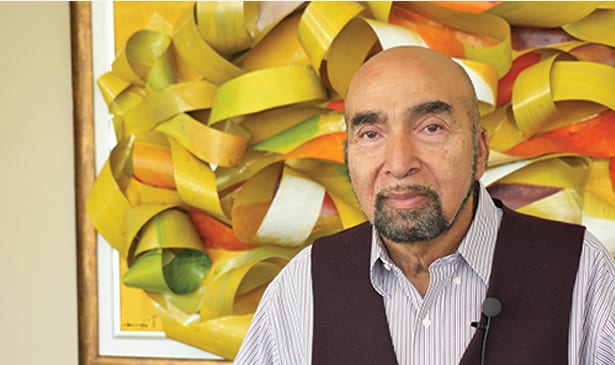By Clare Bratten
NASHVILLE, TN — Despite medicine that can prevent it, HIV still spreads due to secrecy and shame in the Black community, according to Dr. Wilbert C. Jordan, M.D., a doctor and leader in the treatment of HIV/AIDS in Los Angeles.
That’s why the African American community needs to give up the secrecy and stigma surrounding gay and bisexual relations in order to end the pandemic of HIV said Dr. Jordan in a presentation to Meharry Medical staff and community leaders in health and advocacy for the gay community.
Dr. Jordan said the culture of sex had changed to one that was much more casual and anonymous and urged the medical community to be more realistic about that fact and more straightforward with their patients.
“Until we’re comfortable with the reality of sex, we can’t take the information out (on how to live with and prevent HIV). We have to be able to make patients feel comfortable.”
Dr. Jordan argued it was particularly important that there be a change in the culture in the African American community since it has higher rates of infection than any other racial or ethnic group in the US.
“Most of my (male) patients don’t see themselves as bisexual or homosexual — just that they’ve had sex with a man,” Dr. Jordan said.
“African Americans have the highest lifetime risk of HIV diagnosis. One in 20 African American men will have HIV in their lifetime. One in 48 for African American women. “
Dr. Jordan noted that almost all women contract it from sexual relations with a man who has picked up the virus from casual sex with another man. He also said many of his patients had been molested as children.

Being more transparent and open about sexual behavior is more critical now because there is a medication PrEP (Pre-exposure prophylaxis)–one pill a day–that can prevent HIV negative people who might be at risk from getting infected.
“Men need seven days after taking it (PrEP) to get it to an effective level (and be protected). Women need 21 days. It’s like taking a preventative pill for malaria – you start the medication ahead of when you need it,” said Dr. Jordan.
Dr. Jordan was critical of the hypocrisy of some leaders of the community who castigate homosexual and bisexual behavior while secretly practicing it.
The prejudice existed even among hospital administrations in the 1980s in Los Angeles when he first started treating patients.
“Our clinic’s motto was ‘A Clinic for First Class People who are Treated First Class.’ When I first started the clinic, the hospital fought me tooth and nail. We had fist fights.”
“We started our clinic at 6 o’clock at night to 2 am, because the hospital didn’t want them (HIV patients) around. We went through all that.”
“It’s easy to pinpoint a small community (of gay and bisexual people) and make them feel worse and worse when they are trying to gain acceptance in the community. If I’m told I’m no good, my dreams of being a doctor, dentist, or pilot have been destroyed,”
“We don’t allow people to come out and just be who they are. When someone says something in the family, most times they say it negatively. If all you’re hearing at home are negative comments about your sexuality, . . . it tends to make you not express it openly.”
When questioned by Brian Marshall, CEO of MASHUP!, a research and advocacy group for gay and bisexual men, on what else can be done to help, Dr. Jordan argued that more supportive and loving families are important.
“Your first norm is your family. If you’re not made to feel loved, to feel special at home, the world is going to tell you that you are no good. That balance comes from home and a lot of our patients are made to feel bad.”
Dr. Jordan also emphasized the role of education and pride in black heritage as part of the answer.
“Teaching young black men about black history and heritage helps them gain self-esteem and appreciate themselves as young black men,” he said.
“If you are a Jewish child, you go to synagogue school and learn about yourselves as the chosen people. If you are Chinese, you go to the church school and learn about yourself as chosen people. If you are Japanese, you learn that you are the chosen people. If you are black, you watch television. So how do you learn to appreciate yourself?”
Dr. Jordan was introduced by James E.K. Hildreth, M.D. and President and CEO of Meharry Medical College and acknowledged in closing remarks by Paul Juarez, PhD, Executive Director of Health Disparities Research Center of Excellence at Meharry Medical College.

